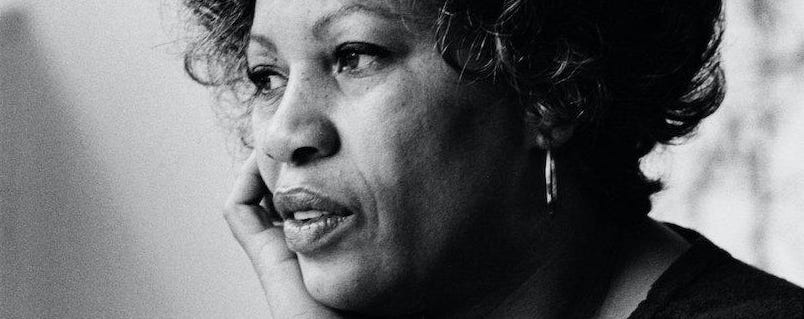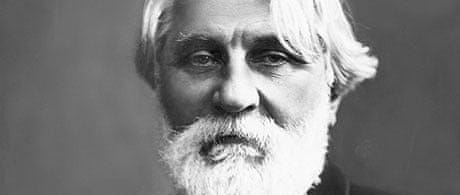Part 2: Essay and essays collections Recommendations.
Books that I consider fundamental for our critical thinking (continuation)
As an avid reader and someone who always wants to learn more about the human condition, art, our huge, devastating mistakes in history, and love… I'm always searching for essays and reading them along with memoirs and diaries.
This is the second part of what I think is a short list of some of the best essays I have read and have left a deep mark on my mind and heart.
As always, I would love to know your own recommendations, thoughts, or feelings.
Part one of this post here
The Source of Self-Regard: Selected Essays, Speeches, and Meditations by Tony Morrison
“Feminism is as old as sexual repression. In this country, women’s liberation flowered best in the soil prepared by black liberation the mid-19th century abolitionist movement yielded suffragettes. The mid-20th century civil rights movement yielded women’s liberation. Both movements were loudly championed by black men no white men so distinguished themselves. But both abandoned Black Civil Rights and regarded the shift away from the race problem as an inevitable and necessary development. An opportunity to concentrate on exclusively sexist issues. Each time that shift took place, it marked the first stage of divisiveness and heralded a future of splinter groups and self-sabotage.”
― Toni Morrison, The Source of Self-Regard: Selected Essays, Speeches, and Meditations
Toni Morrison always makes us feel uncomfortable, about how this world works, about our lack of action against injustice, about how we as humans treat each other. This collection is simple beautiful and absolutely a must-read. She touches with deep and illuminating, unique presence of spirit and strength, themes such as injustice, feminism, Baldwin's power and courage, race, money, the press... it is a very extensive collection and difficult to digest in one sitting. It requires time, love and a lot of strength if, like me, you are very sensitive.
On Hamlet and Don Quixote by Ivan Turgenev
These past days, I have been reading this amazing book, Ideals and Reality in Russian Literature, by Pyotr Kropotkin. (I totally recommend it if you want to learn about Russian lit with a political and aesthetic analysis.) Of course, I was always writing down the titles of books and essays I needed to read.
One of those was from Turgenev about Don Quixote and Hamlet. I must say that Don Quijote is one of my absolutely favorite books, so when I read that he talked about this, I knew I must read it. This was a speech he gave to the Society for the Aid of Needy Writers and Scholars in 1860. If I were to resume the main idea of this amazing essay, I would say it talks about the soul of humankind. He makes a deep and wonderful, really thought-provoking analysis of how humans can be either Hamlets or Quixotes. The text navigates through ideas of passion, art, idealism, self sacrifice… is truly a beautiful text that makes us think about how we decide to manage our lives and how we act inside a society and as individuals.
Nobel Lecture by Alexander Solzhenitsyn
“One artist sees himself as the creator of an independent spiritual world; he hoists onto his shoulders the task of creating this world, of peopling it and of bearing the all-embracing responsibility for it; but he crumples beneath it, for a mortal genius is not capable of bearing such a burden. Just as man in general, having declared himself the centre of existence, has not succeeded in creating a balanced spiritual system. And if misfortune overtakes him, he casts the blame upon the age-long disharmony of the world, upon the complexity of today’s ruptured soul, or upon the stupidity of the public.”
Talking about Solzhenitsyn's literary work will always be complex. In my opinion, he is one of the most powerful voices in Russian literature precisely because of the crudeness and horrible reality from which he comes. This essay/speech is no less important or powerful than his work. Under the pretext of the Nobel Prize, he speaks to us about the uncomfortable truths that must be heard, about art, yes, but also about politics, about the responsibility we all have towards other human beings, about the social crisis that is becoming normal and should not be like that, he speaks to us about the human condition. I really recommend reading it.
In Favor of the Sensitive Man and Other Essays by Anaïs Nin
“What unites us universally is our emotions, our feelings in the face of experience, and not necessarily the actual experiences themselves.”
― Anaïs Nin, In Favor of the Sensitive Man and Other Essays
Known for her erotic literature, diaries and a rather liberal and feminist outlook, Anaïs also has a collection of wonderful essays where she explores themes such as femininity, desire, women's freedom, the sexual revolution, and literary criticism. An always interesting, profound and unreserved outlook.
The Woman Destroyed by Simone de Beauvoir
“As far as I am concerned sexuality no longer exists. I used to call this indifference serenity: all at once I have come to see it in another light—it is a mutilation; it is the loss of a sense. The lack of it makes me blind to the needs, the pains, and the joys of those who do possess it.”
― Simone de Beauvoir, The Woman Destroyed
It is actually fiction, but some consider it a collection of three essays in the form of a story. All very different but they have something fundamental in common, the notion, the living image of the woman who suffers, is diminished, abandoned, or broken and a strong criticism of society, the dependence that it imposes on many women especially economically and how pain is common to us. They are three very interesting and moving texts, sad, that make us uncomfortable.
Reminder: if you want to support my writing, studies and my medical expenses you can do it with Buy me a coffee something that I would appreciate a lot!










Excellent selections!
I have read the last one, really enjoyed it.